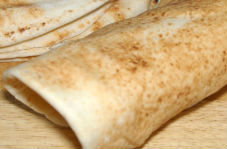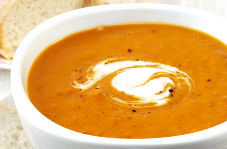7 Super Amazing Seeds You Should Include In Your Diet
 0
0
 2016-02-01
2016-02-01

I loved eating fruits as a child, well I still do. Sometimes I used to accidentally swallow a seed while savoring on a fruit and used to worry that a tree will now grow in my stomach! Every one of us has been through that worry at least once in our lives. The fact is, seeds are actually very beneficial for good health. Of course, not all seeds are edible, but the once that are, are packed with nutrients that will give you more than one reason to be healthy. You can add these seeds to your salad, whip up a dessert out of them, add them to your breakfast and cereals, or can simply munch on them as snacks. Here is a list of absolute “must have” seeds in your diet.
- Sunflower Seeds
Nutritional Value (per 100 grams): Carbohydrates 20 g, dietary fiber 8.6 g, Fat 51.46 g, Protein 20.78 g, Calcium 78 mg, Magnesium 325 mg, Phosphorous 660 mg, Potassium 645 mg
Protect from cancer, Being a rich source of copper, Vitamin E and magnesium it helps to keep the bones strong and prevents arthritis. Vitamin E protects the skin from Sun, combats UV rays and keeps the skin youthful. To know more, click here.
- Pumpkin Seeds
Nutritional Value (per 100 grams): Carbohydrates 14.71 g, dietary fiber 6.5 g, Fat 49.05 g, Protein 29.84 g, Calcium 52 mg, Magnesium 550 mg, Phosphorous 1174 mg, Potassium 788 mg, Zinc 7.64 mg
Being rich in potassium it helps to regulate blood pressure, the rich zinc content enhances the immunity, cell growth, elevates mood and cures sleep disorders, it is also very important for prostate health. It is also a rich source of omega 3 fatty acids which is a hearty news for the heart. To know more, click here.
- Flax Seeds
Nutritional Value (per 100 grams): Carbohydrates 28.88 g, dietary fiber 27.3 g, Fat 42.16 g, Protein 18.29 g, Calcium 255 mg, Magnesium 392 mg, Phosphorous 642 mg, Potassium 813 mg
Flax seeds are anti-inflammatory in nature, prevents cancer, reduce blood pressure, relieve from hot flashes, also protects from heart diseases. To know more, click here.
- Chia Seeds
Nutritional Value (per 100 grams): Carbohydrates 42.12 g, dietary fiber 34.4 g, Fat 30.74 g, Protein 16.54 g, Calcium 631 mg, Magnesium 335 mg, Phosphorous 860 mg, Potassium 407 mg
Being a great source of dietary fiber, they provide good roughage thus boost metabolism and aid digestion. They are also rich in omega 3 fatty acids, monounsaturated and polyunsaturated fatty acids which means they are very healthy for the heart. They are a great source of protein for vegetarians. To know more, click here.
- Sesame Seeds
Nutritional Value (per 100 grams): (kernels, dried) Carbohydrates 23.45 g, Fat 49.7 g, Protein 17.7 g, Calcium 975 mg, Iron 14.6 mg, Magnesium 351 mg, Phosphorus 629 mg, Potassium 468 mg.
It is also a rich source of copper. It helps to control blood pressure, reduces the chances of asthma, heart attack, stroke, and diabetes. It also protects from various diseases like colon cancer, osteoporosis, migraine. It boosts digestion, good for skin nourishment, fights the signs of aging. It is warm so provides warmth to the body in the winter season. To know more, click here.
- Alfalfa Seeds
Nutritional Value (per 100 grams): Fat 0.7 g, Calcium 32 mg, magnesium 27 mg, phosphorous 70 mg, potassium 79 mg.
It is a legume that grows all around the world. Packed with vitamins and minerals, it is very beneficial for health. You can also sprout these seeds and use them for making salads and sandwiches. It helps to reduce cholesterol, treats menopause symptoms, kidney stones, asthma, diabetes, arthritis. To know more, click here.
- Amaranth Seeds
Nutritional Value (per 100 grams): Protein 14 g, Carbohydrates 65 g, fiber 7 g, Iron 7.6 mg, Calcium 159 mg, Magnesium 248 mg, Phosphorus 557 mg, Potassium 508 mg,
Amaranth has been cultivated as a grain for more than 8000 years. Though raw amaranth is inedible, it can be consumed after cooking, like other grains. It is a great source of nutrients. It is gluten free, thus make a great staple food for gluten intolerant people. Being a rich source of protein, minerals and fiber, it makes a great diet food. To know more, click here.
If I knew that seeds had so many health benefits, I would have never worried about eating them.

 Joybynature.com Team
Joybynature.com Team





